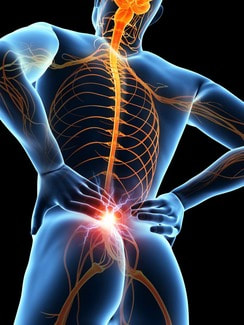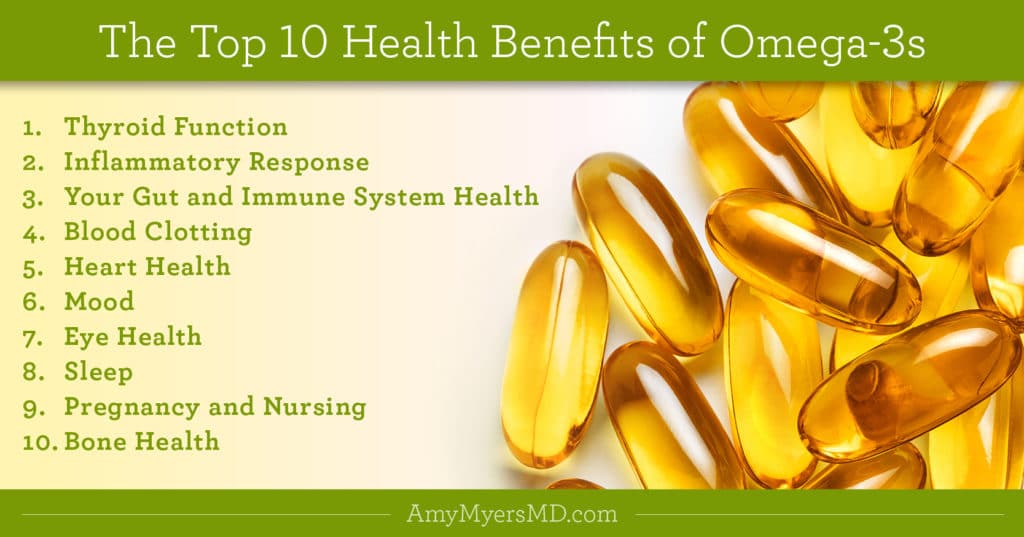 In this picture there is quite a bit of information but the main thing that I'd like to point out is that the autonomic (think automatic) nervous system is split into two parts: Sympathetic and Parasympathetic. The sympathetic is our fight and flight - it basically activates everything that would help us in a fight situation. The parasympathetic is our rest and relax system - it helps to restore a calm and relaxed state. In today's world we tend to live in the overactivated or sympathetic state. This imbalance can create many issues including chronic stress, anxiety, pain, burn-out, inflammation, disease and more. In today's world we need to pay more attention to nervous system balance than ever. Our nervous system doesn't know the difference between a real fight/flight situation and one made up in our minds. It responds exactly the same. Some ways that we can improve the health of the nervous system are: stimulate each aspect of our nerves.
Also check out her free video series at www.brainbased-wellness.com.
0 Comments
 EA (palmitoylethanolamide) is a compound naturally produced by your body to combat pain and inflammation. It targets nerve inflammation and nerve protection responses. In our office we have seen many nerve pain patients heal much faster when adding PEA to their advanced pain therapy treatment. But what does it do? Research shows improved pain and healing times for Sciatic nerve damage, carpal tunnel and likely thoracic outlet syndrome. 300-1200 mg/day Speeds pain relief and healing over 50%. Research Review CONCLUSION: PEA is effective at treating nerve injury, pain and repair by changing the growth factors, cell function and inflammatory reaction at the cell level. PEA is specifically helpful for nerve compression such as sciatica, carpal tunnel and thoracic outlet syndrome as well as signs of fibromyalgia and neuropathic pain. STUDIES: Palmitoylethanolamide, a neutraceutical, in nerve compression syndromes: efficacy and safety in sciatic pain and carpal tunnel syndrome - PubMed (nih.gov) In this research review on PEA of over 6,000 patients PEA was shown to be effective and safe to treat nerve compression syndromes of sciatic pain and carpal tunnel pain. In one double blind placebo control trial it reduced pain over 50% in sciatic patients in only 3 weeks. Palmitoylethanolamide in Fibromyalgia: Results from Prospective and Retrospective Observational Studies - PubMed (nih.gov) In this study patients taking PEA to address pain with fibromyalgia found improvements at 3 months and even greater at 6 months. They had less pain, tenderness and trigger points. It works by addressing nerve inflammation and protection at the microglial cells. Microglial cells lead to peripheral and central sensitization and inflammatory and neuropathic pain because of the over-release of TNF-alpha and IL-1Beta. These neuromodulators are produced after injury or infection of peripheral and central nerves. This means that chronic pain is actually a result of imbalance in the immune system. The immune system is activated to aid the nervous system when the microglial cells ask for help. The microglial cells are always surveying at the cellular level. When pathogens or injury are discovered, cytokines are released that call in the immune cells to clean up and fight off the pathogenic insult. This promotes an inflammatory response which creates neurotoxins. The neurotoxins in turn induce more inflammation. Without a good system to control the toxins produced during the treatment of the pathogen or injury to the nervous system, neuroinflammation will occur. Efficacy of a fixed combination of palmitoylethanolamide and acetyl-l-carnitine (PEA+ALC FC) in the treatment of neuropathies secondary to rheumatic diseases - PubMed (nih.gov) This study shows that in combination with Acetyl L-Carnitine, PEA was significant in improve pain and healing in sciatic and carpal tunnel syndrome. This shows that it may have a synergistic effect when combined with other nerve healing or analgesic compounds. Patients took 600 mg 2x/day for the first 2 weeks and then 1x/day for the remaining 6 months. Perhaps leading to and indication of doing a loading phase to further reduce pain. Palmitoylethanolamide, a naturally occurring disease-modifying agent in neuropathic pain - PubMed (nih.gov) PEA a member of the N-acylethanolamine family which is produced from the lipid bilayer on-demand, is capable of exerting anti-allodynic and anti-hyperalgesic effects by down-modulating both microglial and mast cell activity has led to the application of this fatty acid amide in several clinical studies of neuropathic pain, with beneficial outcome and no indication of adverse effects at pharmacological doses. Non-neuronal cell modulation relieves neuropathic pain: efficacy of the endogenous lipid palmitoylethanolamide - PubMed (nih.gov) PEA delayed mast cell recruitment, protected mast cells against degranulation and abolished the nerve growth factor increase in sciatic nerve concomitantly preserving the nerve from degeneration, while reducing microglia activation in the spinal cord. These findings support the idea that non-neuronal cells may be a valuable pharmacological target to treat neuropathic pain since the current neuronal-direct drugs are still unsatisfactory. In this context PEA could represent an innovative molecule, combining a dual analgesic activity, both on neurons and on nonneuronal cells.  Roughly 40% of women report PMS pain and irritation. I see many women who experience set backs in recovery around their cycle and over the last few weeks diving into Omega-3 research I found it interesting that there were some changes. In this research review we see a few things that can move the needle if you are having PMS symptoms. Omega 3 https://pubmed.ncbi.nlm.nih.gov/28707491/ 95 women too 1 gram of fish oil and found that the supplement improved pms in both the physical pain, bloating etc and the mental emotional components! Omega 3 https://pubmed.ncbi.nlm.nih.gov/23642943/ The second study was done on 124 women taking 2 grams of omega-3's per day (1g 2x/day) They found that after 45 days of taking the omega-3 depression, concentration, bloating and anxiety were all improved in the Omega-3 group! They also found that the treatment improved bloating, headache and breast tenderness. The effects increased by longer duration meaning it kept improving the longer they took the omega-3's. Zinc Sulfate https://pubmed.ncbi.nlm.nih.gov/28188965/ The last study was done supplementing zinc sulfate at 220mg containing 50mg of elemental zinc from the 16th day of the cycle to the first day of the next cycle. They found that of the 142 participants that the Zinc group decreased from 9.5% reporting moderate to severe PMS to 2.6% by the 3rd month. So for those who experience significant symptoms if we combine these studies you'd take 1-2 grams of Omega-3 in the form of the fish oil or krill oil as we spoke about last week and for the last 2 weeks of your cycle add in Zinc Sulfate. Do this for at least 3 months and see where you are. Its another research review: So thanks for the feedback on Omega-3 info. I did get some questions about what Omega-3's are used for.
Tonight we're looking at a few studies First is Migraines: In this study with 182 adults who experienced migraines the high omega-3 and high omega-3/low omega-6 diets decreased the number of headache hours participants experienced per day and the number of headache days experienced per month. Dietary alteration of n-3 and n-6 fatty acids for headache reduction in adults with migraine: randomized controlled trial | The BMJ Omega-3's have also shown benefits in depression and mood. In this study a double blind RCT with 430 outpatients supplementing 1050 mg of EPA and 150 mg of dha provided improvements in clinical and self reported symptoms of anxiety and depression. The improvements were comparable of antidepressant drugs! The Efficacy of Omega-3 Supplementation for Major Depression: A Randomized Controlled Trial | Psychiatrist.com Aging is another important one for Omega-3's. Telomeres are a protection buffer for aging DNA and a general aging marker. The double-blind randomized controlled trial involved 106 adults between the ages of 40 and 85 years who were sedentary and overweight. Supplementation of both 1.25 grames or 2.5 grams of Omega-3 FA were associated with longer telomere length! This suggest Omega-3's could slow aging! https://www.sciencedirect.com/science/article/abs/pii/S088915911200431X Another bit of research is in Cancer. In this study done in mice: Fats with the least saturation (meaning the most double bonds) were most effective, with the omega-3 fat DHA demonstrating the most cancer-fighting ability. However, this result only occurred in cancer cells with an acidic pH compared to a neutral pH. Mice that received the fish oil supplementation lost harmful white adipose tissue but gained metabolically beneficial brown adipose tissue, improving whole-body metabolism. The fish oil diet delayed cancer growth and increased survival, and this effect was magnified by the addition of a ferroptosis-inducing drug. Peroxidation of n-3 and n-6 polyunsaturated fatty acids in the acidic tumor environment leads to ferroptosis-mediated anticancer effects - ScienceDirect It’s #researchreview time! Tonight we’re looking at omega 3’s, fish oil and krill oil. When we look at absorbing the omega-3 fatty acids EPA and DHA there are a few considerations that go into what we should take. First off is how is the fatty acid stored. In Krill oil the FA is delivered to the body in a phospholipid while fish oil often delivers the fatty acid in a triglyceride form. Research has shown that the brain likes to absorb phospholipids better and the stomach can absorb them at a 40% better rate. The issue comes in when we look at the amounts in normal supplements where many krill oil supplements only contain 1/10th the amount of EPA/DHA that fish oil does. Thus even if we absorb twice as much we’re still not getting as much. Conclusion: if you can take the same amount or even close krill oil wins the race but if not maybe taking a very high quality fish oil is a good starting point. The wildcard is that krill oil also contains the antioxidant astaxanthin that helps with inflammation, cell repair, HDL etc.
In 2018 I went to a conference with some of the worlds best anti-aging health hackers and scientists. During that conference a lot of doctors and researchers presented amazing ideas and techniques to get healthier and heal faster. I’m all better lifestyle recommendation The one that influenced these influencers the most was to wake up and spend every morning looking at the sun for 20 minutes with your feet on the earth.
This practice was anecdotally explain as changing cell function in the body, brain function, stress and anxiety, Eichel and overall wellness. If that is the upside of watching the sunrise and the downside is you have an extra 20 minutes to yourself every morning it’s a practice That’s worth a shot. 30 day sunrise earth challenge.  Great question - first off the stress of the heat causes a survival response getting your body to release norepinephrine. Heating up the body and blood also activated heat shock proteins, transcriptional regulators, and pro- and anti-inflammatory factors. Regular sauna also activates transcription regulators that have a strong role in aging and lifespan. They help to protect cell damage, dna damage and stem cell function. These effects and others play a role in the benefits of sauna for heart health, aging, life span and Alzheimer’s prevention Sauna is one of my favorite health and wellness #biostacks. It helps a lot on its own but when you stack it with other treatments it really does some amazing things. The research on the benefits of sauna have continued to grow in recent years. This study done with 2,300 middle-aged men, showed beneficial effects with sauna use reducing risk death and disease. Men who used the sauna two to three times per week were about 27% less likely to die from cardiovascular-related causes than men who didn't use the sauna. When compared to men who used the sauna 4-7 times per week they found the increased dose gave almost twice the benefits – those men who did more sauna sessions were 50% less likely to die from cardiovascular-related causes. They also found the men were about 40% less likely to die from all premature death causes. This was even after age, activity and lifestyle was factored in. The researchers also found that the frequent sauna use reduced the risk of Alzheimer’s and dementia. Both reduced around 66%! Not a bad reason to sweat... |
AuthorDerrick Hines, D.P.T. is the owner of Acadiana Pain and Performance Rehab. The information in this blog is personal opinion and not to be used as medical advice. ArchivesCategories |
*The details, recommendations and content offered on this site are for information purposes only. No patient relationship is formed and this does not constitute medical advice. If you have any health issue needs please seek your medical professional.



 RSS Feed
RSS Feed